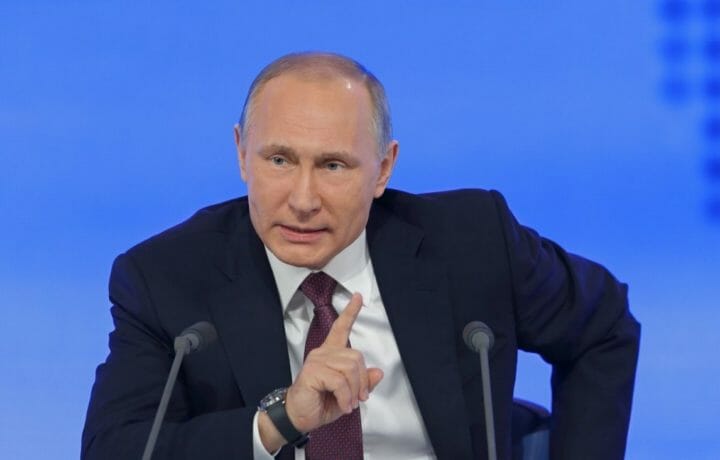Update 10/18: In a move which is reminiscent of a bear retreating to its den to nurse its wounds, Russian Foreign Minister Sergey Lavrov advised today, during a press conference that, “In response to NATO’s actions, we are suspending the activity of the NATO military liaison mission in Moscow and will recall the accreditation of its staff from November 1 this year.”
He concluded, much like a petulant child, “If NATO has some urgent matters, it may contact our ambassador in Belgium on these issues.” It appears the NATO membership coalescence with respect to dealing with Russia’s intelligence activities and diplomatic belligerence is causing discomfort in the Kremlin.”
The week started with NATO advising the 20-person observer delegation to NATO that eight of their number have been identified as intelligence officers and they were being expelled from their position within NATO as observers with a departure no later than, end of October. In addition, the two empty billets within the Russian delegation need not be filled, as the expulsion order also ordered Russia to reduce their contingent’s size from 20 to 10.
According to VOA, A NATO official said Wednesday, “We have reduced the number of positions which the Russian Federation can accredit to NATO to 10,” down from 20 previously. The official described the diplomats targeted as “undeclared Russian intelligence officers. We have strengthened our deterrence and defense in response to Russia’s aggressive actions, while at the same time we remain open for a meaningful dialogue,” he added.
Not the First Rodeo for Russia
In 2018, NATO, in response to the Russian intelligence poisoning in Salisbury, UK., ordered the reduction of the Russian mission to NATO from 30 to 20. This week’s PNG-action, according to UK’s SkyNews, has been tied to the Russian involvement in the explosion which occurred at the armory in Vrbetice believed to have been conducted by Russia’s military intelligence (GRU) Unit 29155 in an act of sabotage. The sabotage resulted in the destruction of tons of munitions and the death of Czech citizens. At that time, the Czech government called for solidarity and support from NATO members, which resulted in numerous Russian’s being expelled and sent back to Moscow across the NATO membership.
The action made this week, followed a meeting of NATO members who agreed to the action which included reducing the Russian presence within NATO. This action is in line with an evolving strategy which has percolated to the forefront over the past few years according to Center for Strategic and International Studies (CSIS). The June 10 report highlights the use of the PNG by NATO members as a policy tool, effectively replacing the quiet PNG’s of old, used only when an intelligence officer under diplomatic cover was found with their hand deep in the proverbial cookie jar.
CSIS observed there are three trends which serve to “explain increased Russian diplomatic expulsions:
- The egregiousness of Russia’s behavior and violations of international law
- Shifts in several NATO members’ domestic political environment
- The need to identify other means to impose costs (in addition to sanctions) on Russia short of military action.”
CSIS continues how, “expulsions seem to be a lower-cost, lower-risk option, although there are costs to closing diplomatic channels and limiting diplomatic services, such as consular affairs.” The report opines how it appears that “Russia’s actions are backfiring” as evidenced by the increase in NATO solidarity.




